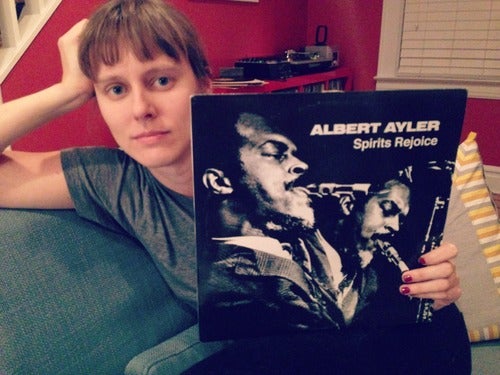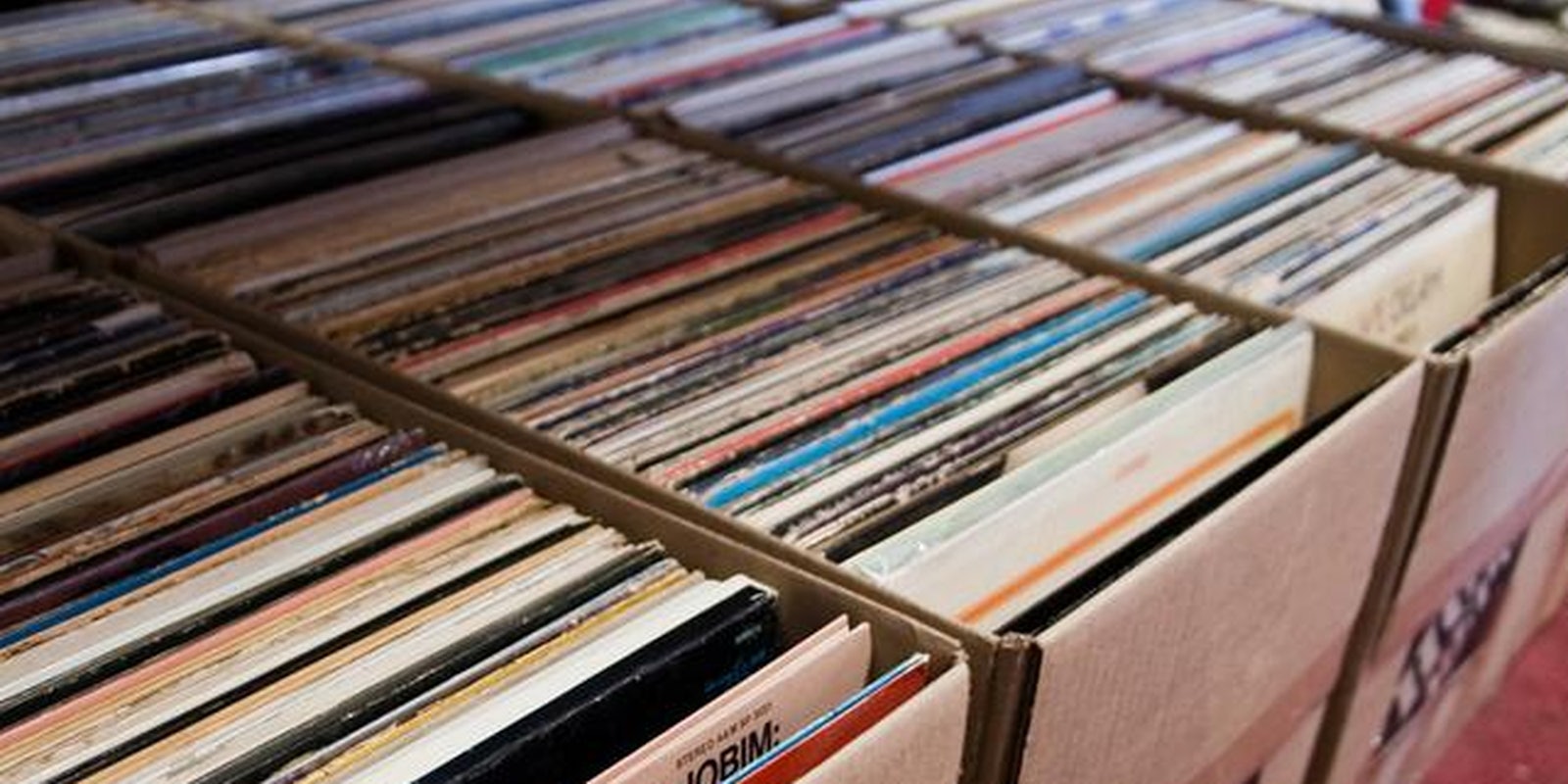I’ve learned a lot about music from men. I came to know obscure bands, essential albums, and heavy chapters of musical history through friends and lovers. Men have been an important part of my development as a fan, critic, and writer. But ultimately, my personal experience and self-education informed my work. Those words are mine.
Earlier this week, a Tumblr started circulating among the music critics, nerds, and fans I know, both personally and from the Internet. It’s called My Husband’s Stupid Record Collection, and it’s written by librarian Sarah O’Holla. The premise: She digs through the extensive record collection of her husband—WNYC On the Media producer Alex Goldman—and muses about each album.
I’d started scrolling through it last weekend, in the throes of a SXSW hangover, and enjoyed O’Holla’s awkward but pure revelations on albums I both loved and and wasn’t familiar with. Many of the albums she wrote about were albums men turned me on to. Then the Internet started to dissect it.
There is something to be said about the praise O’Holla saw for her blog, much of it from men, for digging into her husband’s record collection. Some of the criticism O’Holla faced was for the preciousness of her posts, that her tone was too adorable and therefore invalid as “real” criticism. Or maybe that’s what made it so “cute.” Flavorwire’s Judy Berman, who noticed the praise started to skew more male, dissected the problem with those gender politics:
“The problem, as I see it, isn’t just that this project reinforces the assumption that women don’t know as much about music as the men in their lives — it also perpetuates the more general, ’70s-Woody-Allen-worthy idea that heterosexual relationships revolve around men educating women.”
However, in writing honestly about these often obscure records, O’Holla is, as Amanda Hess pointed out, actually subtly critiquing the record collecting subculture, and the often absurd cultural currency of the Very Serious Record Collector Man, especially in a time where women are just as serious and knowledgeable about it. In a post about free-jazz saxophonist Albert Ayler, she wonders why the album being “pure virgin vinyl” is so important, a critique that’s funny on several levels.

This ties into the bigger criticism women who write about music professionally face. There’s also something to the virality of things like this. Would My Wife’s Stupid Record Collection have gone viral if the roles were reversed? Would it have been ripped apart? There’s still apparently a novelty to a woman discovering and writing about music, and a gendered reinforcement of women as musical neophytes and men as record collectors to be admired. That people had such a visceral, divisive reaction to her blog says something about where we are in 2014.
O’Holla recently responded to this overwhelming response:
“A lot of the criticism of this blog is that it plays up this idea that women’s voices are marginal or less important, but for all that has been written, no one has made any effort to reach out to me for comment, or even to ask me a question. One article got my name wrong throughout. It’s clear that critics are more interested in making me a symbol of some harmful stereotype than understanding what this is, or who I am. Talking to me might make that difficult. It might humanize me.”
Yes. As much as men have been a formative influence in my musical education and in my professional career, I faced guys who were threatened by me, who wrote me off as a joke, who questioned my credentials. I’ve sat feet from an editor who told me, with no whiff of irony, that music writing is a “boy’s profession” and I don’t want to do that for the rest of my life, do I? I’ve had to call out face-palm sexism in local music criticism and engage with commenters suggesting that if my writing career doesn’t pan out, I could try prostitution. Often, seeing me as a human was out of the quesiton.
O’Holla also illuminated the hoops women who are attempting to write critically about music have to jump through:
“After I had the idea for the blog, I almost didn’t do it because I thought, ‘but I don’t know how to write about music.’ But then I decided to put a record on and write stream of consciousness reviews. I decided to be courageous enough to talk about something as a layman, to focus on emotions and the way the music was making me feel, and certain memories or stories it would conjure up rather than the fact that I don’t know how to write about music. These thoughts are me. These are my opinions formed from my experiences. And yes, I happen to be a woman writing about her experiences and having an opinion. I guess that’s still controversial these days.”
In 2014, as ever, honesty is the foundation of any sort of criticism. In hindsight, I learned about some unknown albums from O’Holla, not her husband. On the premise of the blog, O’Holla’s attempt at understanding music relates to a man’s record collection, yes, but that shouldn’t discount her experience. Because those words are hers.
Photo by Orin Zebest/Flickr (CC BY 2.0)


